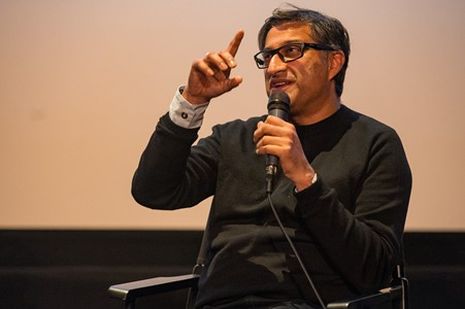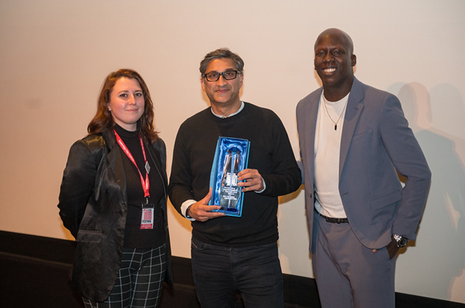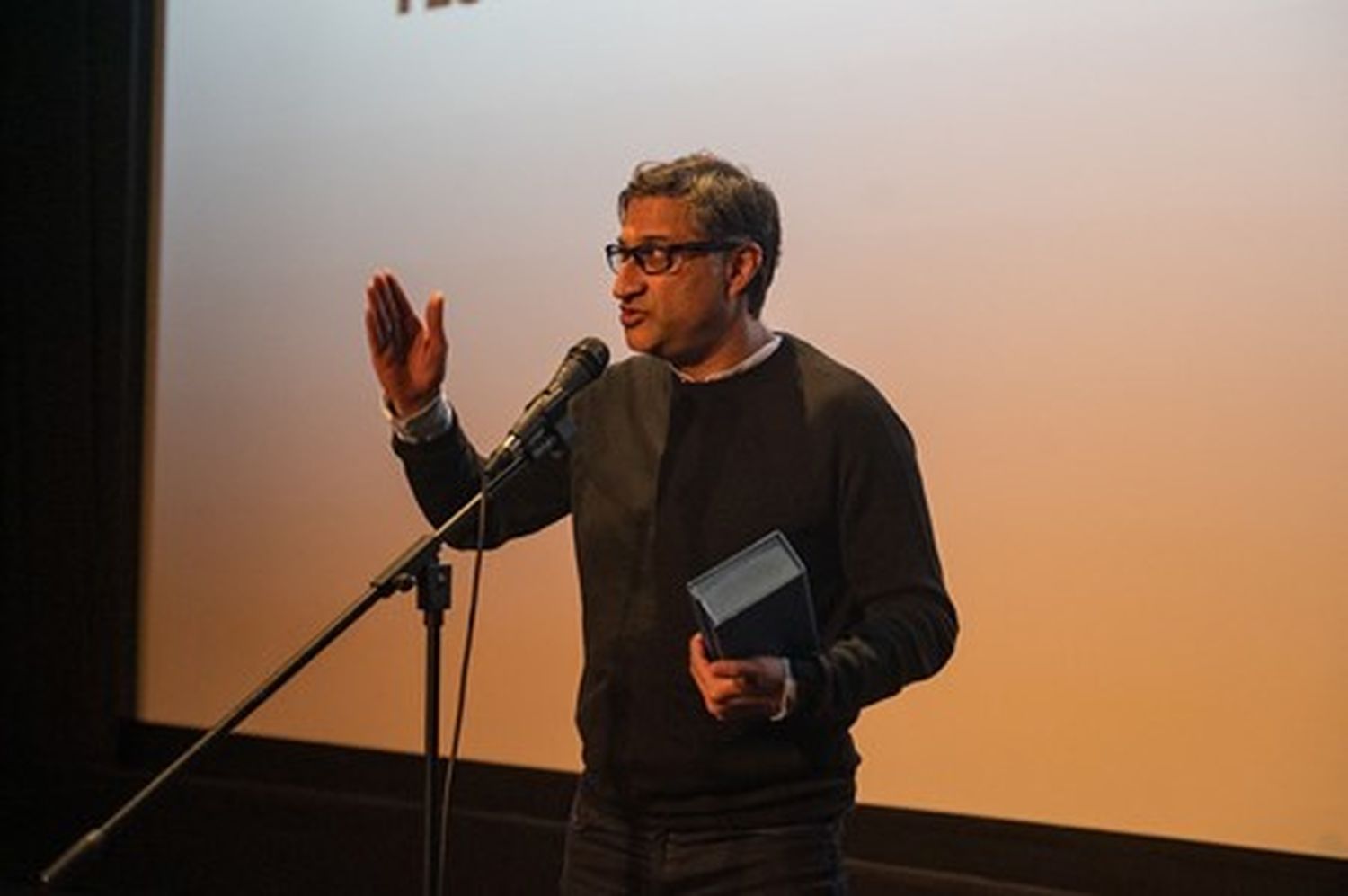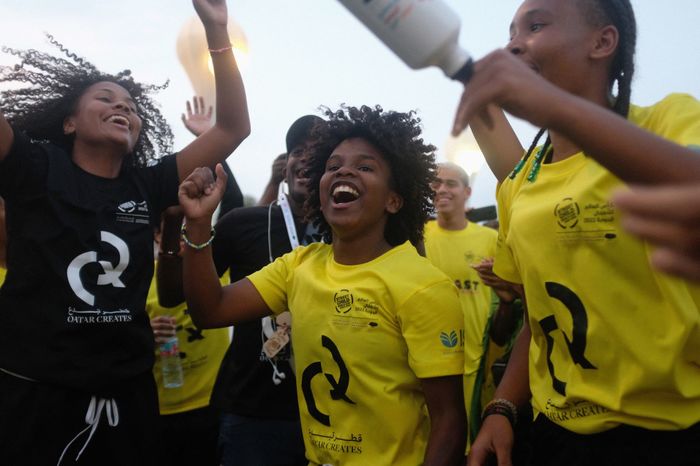“When I made Senna I had no idea I’d make another doc”, Asif Kapadia tells me, a matter of minutes into our conversation. It’s a surprising admission to hear from a man who, now over a decade after the release of that film, can safely be considered the most notable British documentary filmmaker of his generation. Kapadia’s self-characterised trilogy of films about “child geniuses and fame” have, after all, earned him tens of millions in box-office receipts, an Academy Award (for 2015’s Amy) and, in 2023, a (surely no less coveted) prize for Outstanding Achievement in Cinema from the Cambridge Film Festival. “It’s a real honour”, Kapadia says, “I vaguely remember doing a Q&A for Diego Maradona here, back in 2019 – but you get so caught up in the universe of what you’re working on, it’s hard to know for sure. I don’t really really think too much about what happened in the past, I just get working on the next one.”
This inherent drive to always keep moving forwards is very much apparent just talking to Kapadia; here is a creative mind evidently brimming with new ideas and enthusiasm, a filmmaker who seems to truly live and breathe cinema. “I always try to slightly push myself into the unknown, but also push the form slightly”; indeed, Kapadia’s films have had an unparalleled impact on the shape of the modern documentary, relying largely on repurposed archive footage and foregoing retrospective narration from so-called “talking heads”. “The minute you do that,” Kapadia tells me, “you see someone older looking back. The key thing that I’ve tried to do with these three films is to tell the story in the moment from the point of view of the central character. I want you to feel what it’s like to be Ayrton Senna in the car… I want you to leave the cinema thinking you’re Brazilian”.
“A creative mind evidently brimming with new ideas and enthusiasm”

While the process of making the documentaries seems to always start somewhere different (Senna with raw footage, Amy with audio interviews, Diego Maradona with a biography Kapadia read as a student), the filmmaker tells me that, with each subject, he finds it helpful early on in the process to literally “draw out” narrative arcs. “Senna’s arc is like an upward journey; until you get to that final weekend and it’s a real sharp drop. Amy’s is like Mount Fuji, another very quick rise but then a much slower decline. Maradona isn’t a classic up and down, it’s a circle. He’d go somewhere and everyone would love him, he’d be like a god. And then it would all fall apart, so he’d just go somewhere else, and they’d love him there… until it all ended badly. That same cycle, again and again.”
But can such narrative inclinations be taken too far? When does dramatisation of tragedy risk tipping over into the sensationalistic, or perhaps even exploitative? I’m interested to hear Kapadia’s thoughts on the (already much maligned) Amy Winehouse biopic currently in the works – do we really need yet another recounting of this young woman’s suffering? He initially seems unsure (“It’s really not an easy answer”, he says, before asking me what I think) but goes on to admit that, more recently, he’s “fallen out of love with actors pretending to be famous people”. “Personally, I don’t think there’s any actress out there who can look like Amy, sound like Amy, perform like Amy. I think a well-made doc will always be more emotionally powerful than a fiction film about the same subject.”
What does Kapadia have to say, though, to that sizeable minority of detractors, who argue that his version of Winehouse’s story itself borders on gratuity, his camera becoming just another cog in the paparazzi machine that many believe played a substantial part in the singer’s death? “Partly it was to turn the camera back at the audience… saying someone’s laughing at this woman and her suffering. Who holds the camera is also something that changes during the film. By the end, it is the paparazzi, but the cameras are physically attacking her, literally hitting her in the face. I want people to be uncomfortable with that.”
“Partly it was to turn the camera back at the audience...”

If Amy challenged Kapdia with the story of someone whose passing, at the time, remained relatively raw, then Diego Maradona brought quite the opposite problem – for the first time, he was making a documentary about someone who was still alive. The film plays on a certain bifurcation between the celebrity persona, ‘Maradona’ and the man behind all the flash, ‘Diego’ – I ask Kapadia whether, in interviewing the footballer himself, he ever felt like he managed to get behind the mask. “I don’t know if I did, no. Maybe no-one could. I’m not even sure ‘Diego’ existed anymore”. Maradona publicly disavowed the film, cancelling a trip to attend its premiere at the Cannes Film Festival. “I’m still not sure if he ever saw it”, Kapadia laughs, “but I should say that the film was later shown on one of the main channels in Buenos Aires. Diego had a huge TV in every room of his house – the idea that, if there was a film all about him on one of his TVs, he wouldn’t watch it? I’ll let you decide how likely that is!”
As a self-professed ‘underdog’ (“a lot of the film industry in the UK come from a certain background… I just worked my way up”) does Kapadia have any advice for budding student filmmakers here in Cambridge? “There’s a key line at the end of Senna where he looks back in time and says that what he used to love about doing go-kart racing is that it wasn’t about money and politics. So, I’d say when you’re starting out, you’ve got to remember that it’s not about money, it’s not about politics, it’s not about what movie star you’re going to get in. The main thing is to really enjoy it, push yourself and make sure you finish what you started. The scariest thing is putting it out there in the big bad world, getting your film shown somewhere. Not everyone will love it, but that’s okay. It’s all a learning curve”.


